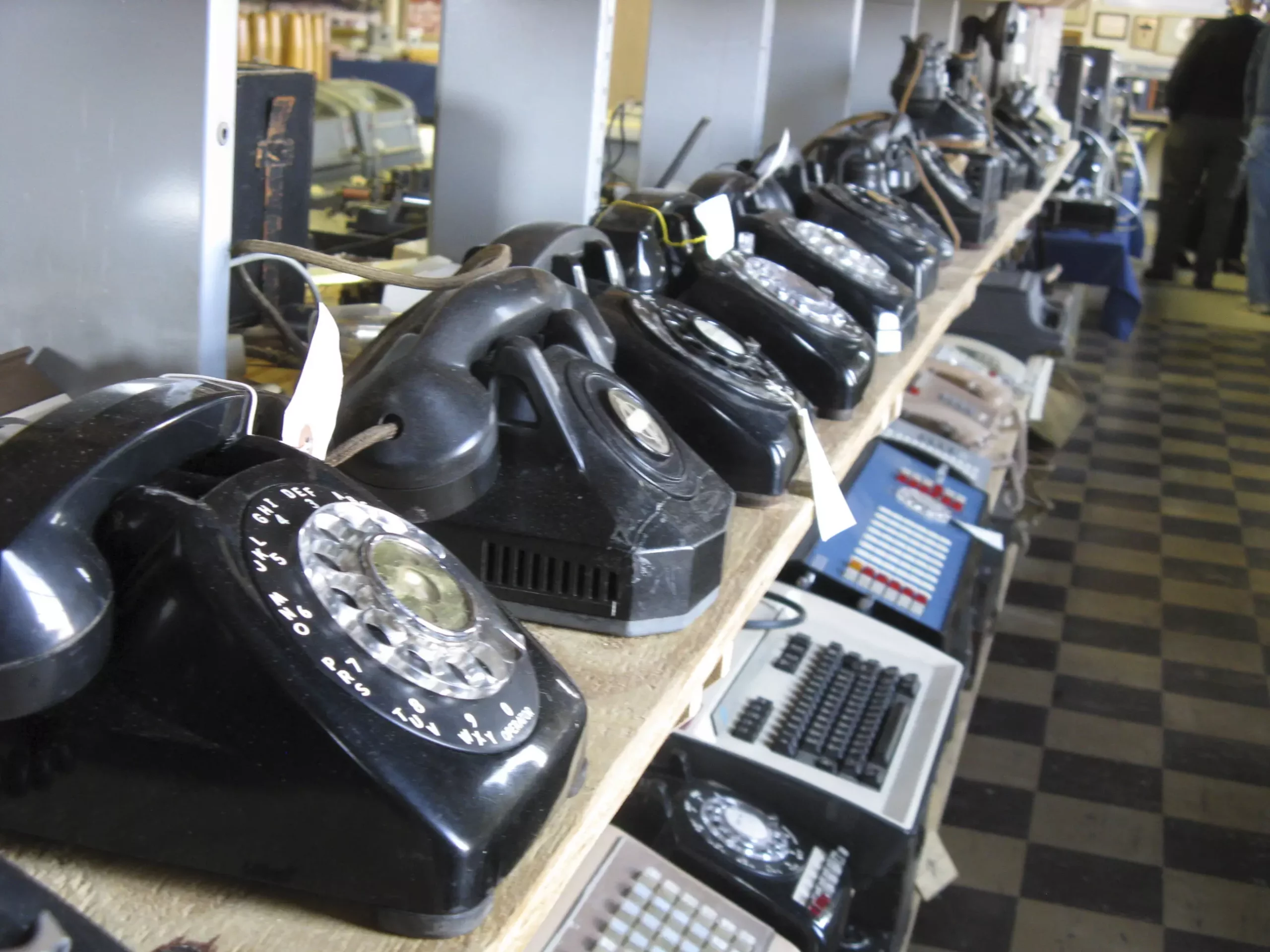In a day and age where digital advancements have revolutionized the way we communicate, the humble landline telephone is becoming an increasingly rare sight. The recent AT&T network outage served as a stark reminder of the dwindling relevance of landlines in today’s society. While many opted for alternative means of communication during the outage, there were still a select few, like 69-year-old Bernice Hudson, who relied on their trusty landline to stay connected. These individuals represent a minority in a country where wireless phones have become the norm, leaving landlines as relics of a bygone era.
The transition from landline phones to smartphones has been a gradual but significant shift in how we perceive communication. With the debut of Apple’s first iPhone in 2007, the concept of telephones transformed from mere voice communication devices to data-saturated computers that fit in our pockets. This introduction marked a pivotal moment in history, where people’s relationships with technology were forever altered. Smartphones became more than just tools for communication; they became extensions of our identities and daily lives.
According to Brian Ott, a professor of communication and media, the introduction of new technologies, such as smartphones, has a ripple effect on existing technologies. The rapid adoption of new devices influences how we interact with older technologies, even if they remain available. The rise of mobile telephony has permeated every facet of our society, with smartphones becoming indispensable for many. As the reliance on mobile devices grows, traditional landlines have been relegated to the realm of nostalgia for some and practicality for a few.
While the convenience of smartphones and wireless connectivity has transformed the way we communicate, it also comes with its fair share of challenges. The recent AT&T network outage serves as a cautionary tale of what happens when our primary means of communication falter. In a world where landlines are no longer ubiquitous, disruptions in cellphone service can leave many feeling vulnerable and disconnected. The outage begs the question of how society would cope if faced with a widespread telecommunications breakdown in an era dominated by wireless devices.
Despite the waning popularity of landlines, there are still those who cling to tradition and choose to maintain their home phone service. Individuals like Rebecca Whittier, 74, see the value in having a reliable landline, especially when faced with emergencies or technological limitations. For many, the nostalgia and simplicity of using a landline outweigh the modern conveniences of smartphones. The sentiment of being “old-fashioned” or technologically averse remains prevalent among a select demographic, highlighting the enduring appeal of traditional telephone services.
As we hurtle towards an increasingly digital future, the fate of landlines hangs in the balance. While the overwhelming majority has embraced wireless phones as their primary mode of communication, the debate over the necessity of landlines persists. The outage serves as a reminder of the potential pitfalls of relying solely on mobile devices for connectivity. It prompts us to reflect on the importance of redundancy and preparedness in an era where technological failures can have far-reaching consequences. Whether landlines will experience a resurgence or fade into obscurity remains to be seen, but their status as a symbol of a bygone era is undeniable.


Leave a Reply